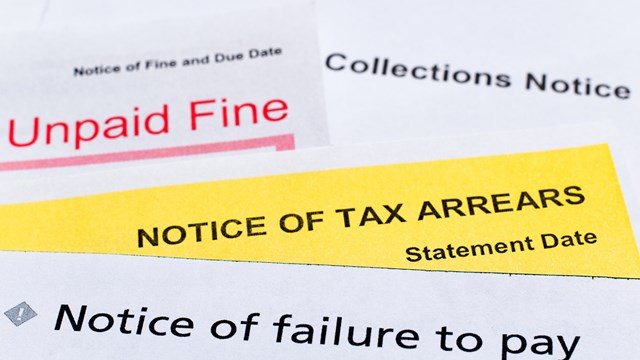Most of the time, condo and HOA residents live in harmony with (or in relative ignorance of) their association’s rules and regulations. It’s not until conflict arises that people begin to examine and familiarize themselves with the laws of the land, so to speak, and sometimes board members and managers are as in-the-dark as unit owners about the rights and responsibilities of residents.
Let’s take a closer look at some rights you should be familiar with, both as an HOA resident and as a building administrator.
House Rules
Every association has so-called house rules and restrictions, which regulate behavior of the people who live in close quarters. The rules exist to provide a safe, pleasant living environment.
“It’s not always easy to figure out what is a rule and what is a restriction,” says J. David Ramsey, a partner in the real estate department, chair of the community association practice group, and a member of the planned real estate practice group, at the law firm of Greenbaum Rowe Smith & Davis LLP. “But usually if it goes to the element of using your unit, it has to be by restriction.”
Although co-ops have a bit more ability to enforce house rules, the rules themselves don’t deviate all that much from community to community. And most of the time, they are logical. Of course you’re not supposed to use the hallway as a storage closet for your collection of classic comic books, or dump flammable materials down the garbage chute.
“Sometimes I’ll get a situation where people will ask, ‘Residents on the upper floors have hardwood floors and make a lot of noise so the people below can’t sleep,’” says Ramsey, “ ‘Can the board adopt a rule requiring carpeting?’ The answer is no, because that has to be a restriction that is in the governing documents. . . The board can’t do it by rule.”
Enforcement of rules and restrictions is catch-as-catch-can. The board has better things to do—usually—than inspect each apartment to make sure the percentage of carpet is up to snuff. For this reason, many residents aren’t really aware of the formal house rules—until they have to be.
Being sued by your HOA for violating the rules—a yapping mutt that won’t shut up, say—might seem excessive, like getting arrested for not wearing your seat belt. That doesn’t mean it can’t, or doesn’t, ever happen. Just as a woman in Texas was arrested by an overzealous cop for not wearing her seat belt, people do find themselves sanctioned, fined, or even sued for wanton violation of house rules.
Different Buildings, Different Boards
Whether co-op or condo, building boards need to know their limitations and have a solid understanding of their residents’ rights.
“A good rule is specific, detailed, and lays out exactly what can be done and what can’t,” says Michael Kenyon, president of RSL Management, Inc. in Hillsborough, and jokes that a bad rule is “one that makes more work for the manager.” In all seriousness however, Kenyon says that clarity and specificity not only make rules and restrictions easier to enforce, but enable residents to know exactly where they stand in relation to their association’s expectations.
If a house rule is too general, Kenyon continues, it can be misinterpreted, and possibly lead to legal issues, either in arbitration or in court. And needless to say, whenever lawyers get involved, the cost of a dispute rises dramatically.
Association boards also owe it to their community members to enforce rules and restrictions fairly and consistently, even when the board changes over after an election.
“A lot of it depends on the board,” says Kenyon. “With some boards, it’s the letter of the law. Other boards are more lenient.” Either way, new boards who plan to take a harder (or softer) line on rule enforcement must let residents know about any new policies—either through letters, a newsletter, email alerts, or simple door-to-door visits.
An incumbent board usually doesn’t suddenly change the way it enforces rules, but when a new board comes in with the goal of being more disciplinarian, they need to let unit owners and shareholders know.
For example, says Kenyon, a condo may have a policy prohibiting wind chimes outside, but the outgoing board might have ignored the rule. A new board may turn out to be anti-chime sticklers. “We have to put notice out there because there’s already been a precedent set,” he explains. “So we have to let people know that ‘Effective February 1st, we are now going to follow all house rules and bylaws to the letter.’” This way, the residents are not surprised when they get fined for not taking down their wind chimes. Communication is vital here, says Kenyon, because nothing is more frustrating than arbitrary enforcement of a rule.
Alteration Agreements
Communication is especially key when it comes to the right of association residents to make alterations and renovations to their units. In multifamily buildings or attached homes, construction in one unit can impact others—often negatively—so boards enact rules to minimize the effect one owner’s project has on his or her neighbors.
There’s a fine line between cosmetic and structural alterations, and most HOA rules differentiate between the two, and spell out how much control the board has over what an owner can do without permission and oversight.
While a major kitchen or bathroom renovation can affect the plumbing system serving multiple units, aesthetics play a role as well. You can’t just install a Jacuzzi—at least not without permission—and you can’t haul off and plant a vineyard in your back lawn, now matter how much fun the Jacuzzi and the vineyard would be at the annual party.
Nor can you suddenly decide to paint your townhouse pink, or chartreuse, in other words. “Renovations have to be architecturally and aesthetically consistent,” says attorney Wendell Smith, a partner in the real estate department, and a member of the community association practice group at the law firm of Greenbaum Rowe Smith & Davis LLP in Woodbridge. “[HOAs] want to keep a certain look—they don’t want anything that sticks out like a sore thumb.”
Couched this way, it may sound restrictive, a clamping down on creative self-expression. But aesthetics are a principal reason people buy condominiums. Simply put, condos look neat. The surrounding buildings all have a similar look and feel, unlike an ordinary house on an ordinary street, where nothing is stopping a neighbor with gauche tastes from building something awful in plain view of your deck.
Some boards are so strict that they require a certificate of insurance for something as routine as a fresh living room paint job—but only some.
If you want to get rid of the rugs and install hardwood floors, however, you might encounter a problem, if your unit is above another one.
Lien Times
As the recession churns on, and the New Jersey real estate market struggles to adapt to the changing economic climate, more and more unit owners are, alas, unable to keep up with their monthly common charges. Thus it is important for boards to know about lien priority, and what they should do in the event of foreclosure or bankruptcy in their building or association.
“A lien is an interest in a debtor’s piece of property givenbya debtor to a creditor, voluntarily or involuntarily, which allows the creditor to confiscate the property in the event the debtor defaults in the payment obligation secured by the lien,” explains Stephen M. Lasser, a partner with the law firm of Stark & Stark, which has offices in New Jersey, Pennsylvania and New York City. “Lien priority is the pecking order in which debts secured by liens are paid when one piece of property serves as the lien security for multiple debts.”
The lien priority is, in today’s market, one of the most important differences between co-ops and condos. A co-op’s lien for unpaid maintenance comes ahead of the bank’s. Thus, the bank can work for the co-op, because it must satisfy the co-op’s lien before it takes it own share.
Condos, however, are another story. “Generally speaking, the lien priority betweencondominium associations and banks givingmortgage loans to unit owners is the reverse of the lien prioritybetween cooperative corporationsand banks,” says Lasser. “In other words,the mortgage liens and debts of foreclosing banks have priority over condominium associations’ liens for unpaid common charges.”
If a defaulting owner’s debt is a pizza, the bank might eat all eight slices by the time the condo board gets around to collecting its back maintenance charges. If several units don’t pay charges for a few months, this can kill the budget sheet—especially in a small condo.
“When a cooperative board receives notice of a bankforeclosure against a shareholder, the board should have its legal counsel contact the lender’s legal counsel to make sure that the lender hasan accurate calculation of any maintenance owed by the shareholder,” Lasser advises. “In addition, most foreclosure sale transfers are subject to cooperative board approval, so financial and other criteria of prospective purchasers should also be communicated to the lender’s legal counsel.”
All of this can take a long time, even in best-case scenarios. So it’s important to keep on top of things.
“Because a bank mortgage loan foreclosure can take several years to complete, condominium boards should consult with their attorneys to discuss starting money judgment lawsuits againstunit owners in foreclosure to recover any unpaid common charges from such unit owners while the bank foreclosures are in progress,” Lasser says.
Know the Facts
Though most board members are professionals in their daily work life, most aren’t professional board members or real estate experts. In light of that, it’s vital that board members make full use of the resources available to them to help them do their job and administer their building community effectively. Whether that means calling their building’s attorney to ask questions, or reading a publication like The Cooperator to stay abreast of new developments and management tips, understanding residents’ rights and the board’s obligations should be a top priority for all HOA administrators.
Greg Olear is a freelance writer and a frequent contributorto The New Jersey Cooperator.







Leave a Comment